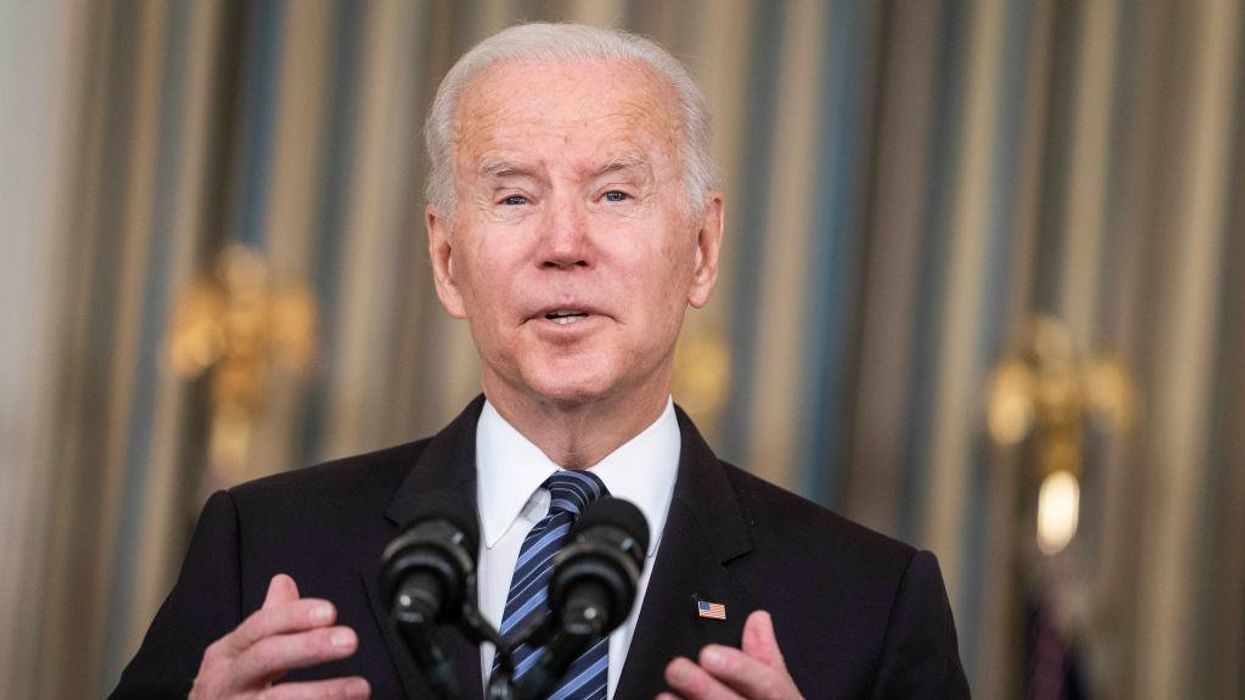
Sarah Silbiger/Getty Images

An analysis of President Joe Biden's Build Back Better framework finds that the multi-trillion dollar social spending plan could cost more than twice what the White House claims it will over the next decade.
An estimate from the Committee for a Responsible Federal Budget found that the House Build Back Better Act as currently written will cost roughly $2.4 trillion with about $2.2 trillion in offsets. But the legislation relies on budget gimmicks, sunset provisions, and expirations of certain tax credits and programs in order to keep the topline cost artificially low.
"If the plan's temporary policies were made permanent, we find the cost would increase by as much as $2.5 trillion," the CRFB analysis stated. "As a result, the gross cost of the bill would more than double from $2.4 trillion to $4.9 trillion."
In late October, the White House released the framework for the Build Back Better Act, a plan to provide free child care, expand Medicare and Medicaid, enact new climate change policies, extend the Earned Income Tax Credit, and more. Biden's administration claims the plan will cost $1.85 trillion and will "reduce the deficit" by increasing taxes on the wealthy and corporations.
In reality, the plan as it stands now is projected to add $200 billion to the deficit over 10 years. But that figure relies on the Child Tax Credit increase and Earned Income Tax Credit expansion from Biden's coronavirus stimulus package ending after one year, as well as subsidies for universal pre-K and childcare ending after six years, the healthcare program expansions lasting only through 2025, and other measures expiring in the near future.
"To be sure, lawmakers may choose not to extend some or all of these provisions. However, if they do, they would need to more than double current offsets in order for the bill and the extensions to be paid for. The alternative would be a substantial increase in the debt," CRFB stated.
While it's technically possible that Congress could allow some or all of these tax credits and subsidy programs to end, doing so would be politically unpopular and would be met with vocal protestations from lawmakers that favor an expansive social welfare safety net.
If each piece of Biden's Build Back Better plan is made permanent without additional spending offsets, it will add nearly $3 trillion to the deficit through 2031.
"The Build Back Better Act relies on a substantial amount of short-term policies and arbitrary sunsets to reduce its cost, raising the possibility of deficit-financed extensions in future years," CRFB concluded. "A more robust and fiscally responsible package would not rely on these gimmicks to achieve deficit neutrality."